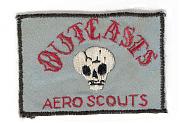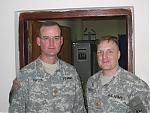I think the
SWJ community will benefit from the
attached essay by Dr. David Ucko, who recently completed his doctoral work at King’s College London. This well-crafted essay has just been published by Orbis, the policy journal of the Foreign Policy Research Institute. It’s an objective assessment of where the United States stands in our adaptation to counterinsurgency and irregular warfare, from an outsider’s perspective.
Dr. Ucko’s research is focused on how well the U.S. is absorbing the right lessons from today’s ongoing conflicts, and how well DOD is institutionalizing the necessary changes across the doctrine, structure, training and education and equipment pillars of combat development. A student of American military culture, he notes our history of adapting to counterinsurgency campaigns, but then quickly discarding the lessons learned at the close of the war to return to our preferred conventional mode.
Ucko challenges whether or not DOD has truly embraced irregular warfare. “With the eventual close of the Iraq campaign,” he asks “will counterinsurgency again be pushed off the table, leaving the military just as unprepared for these contingencies as it was when it invaded Iraq in 2003?” Thus, this essay fits into the context of the debate we have seen on these pages and in the Armed Forces Journal (Shawn Brimley and Vikram Singh’s “System Reboot”) about whether or not the American Way of War will adapt or revert to form...








 , who will have to take the ball and run with it.
, who will have to take the ball and run with it.

 ).
).









Bookmarks